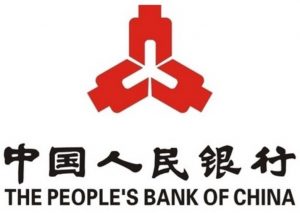Latest news about Bitcoin and all cryptocurrencies. Your daily crypto news habit.

On Monday, Chinese publication 8Btc posted a translation of a document that contained supposedly leaked “rectification guidelines” for bitcoin exchanges. “It’s the first time the document that’s given rise to the regulatory storm on bitcoin exchanges was exposed to the public,” according to the publication.
Also read: Major Chinese Exchanges to Postpone the Return of Withdrawals
State Council’s Plan
The State Council is the chief administrative authority of China, chaired by the Premier and includes the heads of each governmental department and agency. The People’s Bank  of China (PBOC) is one of the 35 departments and agencies constituting the State Council.
of China (PBOC) is one of the 35 departments and agencies constituting the State Council.
On October 13, 2016, the State Council released to the public “the Plan to Implement Special Rectification Work on Internet Finance Risks.”
The leaked document references the October implementation plan by the State Council (No. 21) as well as a notice by the PBOC and 17 other ministries (No. 281) published in December last year. It then states that:
Rectification work is conducted on bitcoin exchanges.
‘Rectification Guidelines’ for Bitcoin Exchanges
The leaked document has 10 sections. The images of the original document can be found on Hexun.com, one of China’s largest financial information portals. They were reportedly first posted by a Wechat user. “This guideline applies to all bitcoin trading platforms that are found across the country,” the first part of the document reads. It continues:
The purpose is to crack down and abolish illegal financial operations on bitcoin exchanges, to maintain the order of bitcoin market, to prevent financial risks and to protect investors’ interests.
 Rectification guideline document, posted on Hexun.com
Rectification guideline document, posted on Hexun.com
If the leaked document is authentic, local regulators are supposed to take the lead in the rectification work, with the help of the local branch of the People’s Bank. They are to perform on-site inspections, put forward recommendations, and submit progress reports regularly.
Depending on the outcome of the inspection, bitcoin exchanges may be required to stop fiat and bitcoin lending businesses; charge transaction fees; suspend bitcoin withdrawals; establish a sound anti-money laundering system; and conduct business in line with legal requirements.
“The document confirms that the suspension of bitcoin withdrawals is a direct order from the authority,” 8Btc inferred.
Regular progress reports include details of “the basic situation of the trading platform, issues found in the preliminary investigation, issues to be further identified, an action plan for future rectification, rectification summary of exchanges within the jurisdiction,” the publication translates.
Negative List of Rules
A section in the leaked document is dedicated to rules that bitcoin exchanges must follow. In March, Bitcoin.com reported on a similar list of prohibited items imposed on bitcoin exchanges, published by Caixin publication. Below is the new set of rules outlined in the leaked document.
1. Do not engage in fiat and bitcoin lending.
2. Transaction fees must not be zero.
3. Do not engage in money laundry.
4. Do not violate relevant regulatory requirements on foreign exchange management.
5. Do not engage in illegal payment business.
6. Do not engage in business operation beyond the scope stated on the business license.
7. Do not violate industrial and commercial advertising and other laws and regulations.
8. Do not violate laws and regulations of national securities and futures.
Inspection Checklist
In addition, the guidelines detail some areas which bitcoin exchanges are inspected. For each exchange platform, the inspector must check several key areas and any other items that may come up. Some of them are outlined below.
First, the exchange’s basic business information needs to be verified, including its registered capital, operating entity, shareholder structure, and related businesses. Second, specific details of its operations need to be disclosed, including the amount of deposit and withdrawal from 2016 to present date of 2017, the amount and quantity of transactions, rates and fees and its bitcoin trading model.
Third, the inspector must determine whether the exchange has violated any relevant provisions as an exchange platform such as the use of standardized contracts and whether the order book is matched electronically. Fourth, it must be determined if the exchange is engaged in illegal financial businesses such as offering margin loans, futures trading, payment, exchange and other services without authorization.
 Fifth, the inspector must determine if the exchange has a sound anti-money laundering system. This includes establishing customer identity information and transaction record storage system as well as establishing a system for reporting on large and suspicious transactions.
Fifth, the inspector must determine if the exchange has a sound anti-money laundering system. This includes establishing customer identity information and transaction record storage system as well as establishing a system for reporting on large and suspicious transactions.
In addition, the inspector must also verify the exchange’s procedure regarding customers’ funds including determining the balance of the funds, the use of the funds, and the establishment of a third-party custody system.
While the inspections may be exhaustive and the requirements extensive, the necessary work may already be done. According to the China Banking Regulatory Commission, the rectification work “is planned to be finished in March 2017,” the Commission said when the implementation plan was released in October last year.
What do you think of these regulatory guidelines for Chinese bitcoin exchanges? Let us know in the comments section below.
Images courtesy of Shutterstock, Hexun.com, and PBOC
Do you need to calculate your bitcoin holdings? Check our tools section.
The post ‘Rectification Plan’ for Chinese Bitcoin Exchanges Leaked appeared first on Bitcoin News.
Disclaimer
The views and opinions expressed in this article are solely those of the authors and do not reflect the views of Bitcoin Insider. Every investment and trading move involves risk - this is especially true for cryptocurrencies given their volatility. We strongly advise our readers to conduct their own research when making a decision.